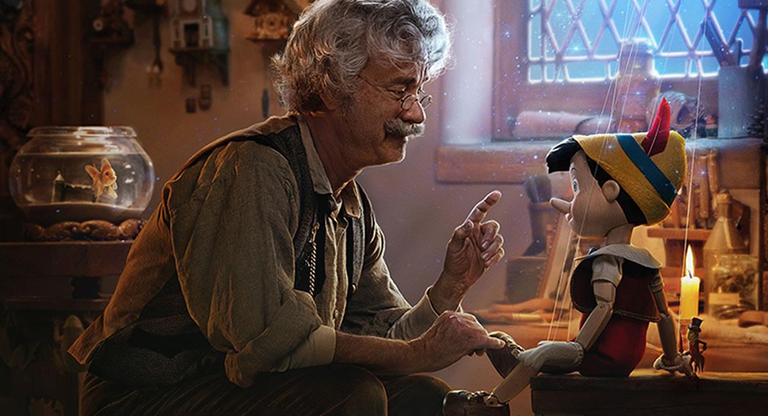
Hello, internet people, today I want to talk to you about Disney's remake of Pinocchio and the truth is that, although I thought it was generally good, there are mistakes that don't make me want to see it again. As usual, let's break the film down feature by feature.
Hola, gente de internet, hoy quiero hablarles del remake de Pinocchio de Disney, y la verdad es que, aunque en líneas generales me pareció buena, hay errores que no hacen que quiera verla de vuelta. Como es costumbre, desglosemos la película característica a característica.
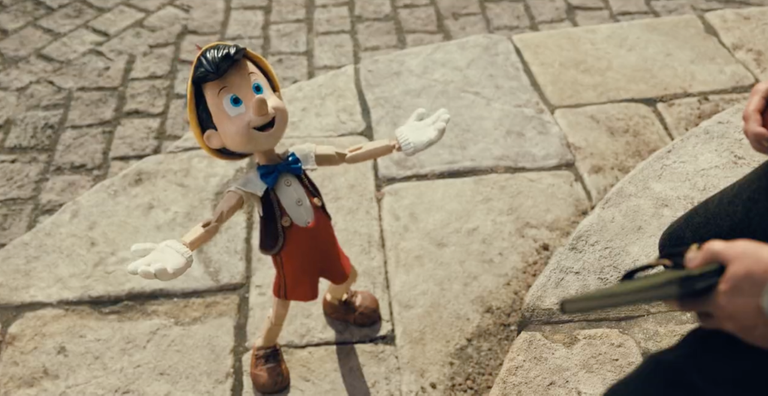
Let's start by clarifying what a remake is, since a lot of people don't know the term and think that a remake is uh reboot and it's not even close to the same thing. A remake is a faithful adaptation of a previous work, so I don't understand why some people complain that this film is the same as its animated counterpart, it's logical that it will be the same! It's a remake, not a reboot! Remakes can even add scenes that weren't in its predecessor, but that's as long as it doesn't interfere with the central story as we can see in the Beauty and the Beast remake (which I'll talk about this week) or in the film we're talking about today.
Empecemos por aclarar que es un remake, dado a que muchísimas personas desconocen el término y creen que un remake es uh reboot y no es ni de lejos lo mismo. Un remake es la adaptación fiel a un trabajo anterior, así que no entiendo el fecho de que algunas personas se quejen de que esta película sea igual a su contraparte animada ¡es lógico que será igual! ¡Es un remake no un reboot! Los remakes incluso pueden agregar escenas que no estaban en su predecesora, pero eso siempre que no interfiera con la historia central como podemos ver en el Remake de La bella y la Bestia (del que hablaré esta semana) o en el film que nos ocupa hoy.
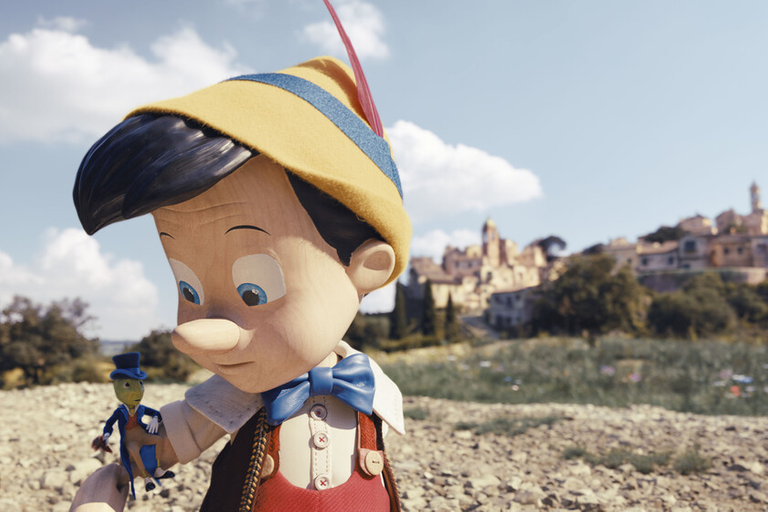
I'm not going to talk about the story because we all know it, and as it is a well done remake (at least in terms of the main story, as well as the art and technical aspects) it is exactly the same, however I will point out some details that have to do with the story but that are really part of the character development and I will talk about it later.
No voy a hablar de la historia porque todos la conocemos, y como es un remake bien hecho (al menos en cuanto a la historia principal, así como el apartado artístico y técnico) es exactamente igual, sin embargo voy a puntuar algunos detalles que tienen que ver con la historia pero que realmente forman parte del desarrollo de personajes y lo hablaré más adelante.

The cinematography is extremely beautiful, the locations are quite common in northern Italian villages (especially from those times) the colour palette is warm and colourful for what you would expect from a children's story and I was able to enjoy it in its splendour at the fair.
La fotografía es en extremo preciosa, las locaciones son bastante comunes en los pueblos italianos del norte (sobre todo de aquellas épocas) la paleta de colores es cálida y colorida para lo que se espera de una historia para niños y pude disfrutarla en su esplendor en la feria.
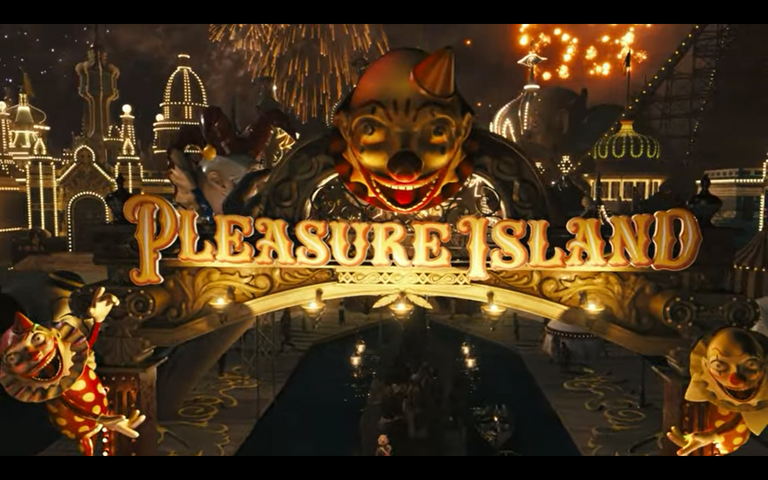
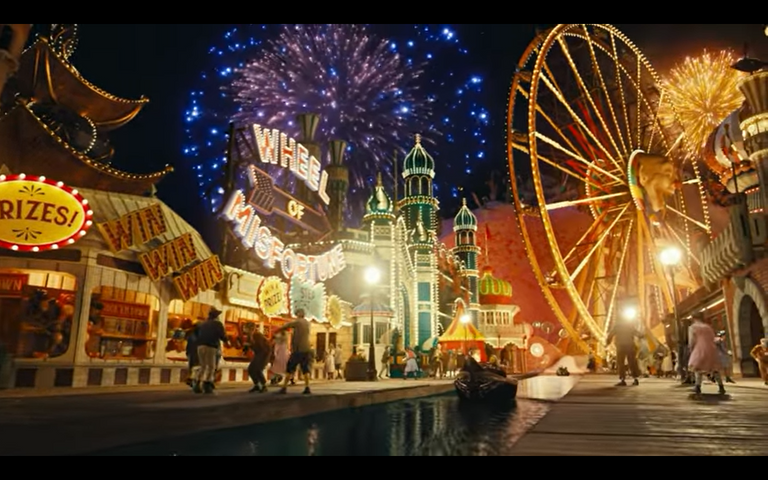
It is clear that the cinematography is so warm, striking and beautiful because it is precisely within the context of the story that the Pleasure Island beckons children to enjoy it, the idea is that it is a magnet for children and that is why such a beautiful and striking aesthetic makes sense.
Está claro que la fotografía es así de cálida, llamativa y preciosa porque precisamente, dentro del contexto de la historia, la isla de los juegos llama a los niños a disfrutar en ella, la idea es que sea un imán de niños y por eso una estética tan bonita y llamativa tiene sentido.
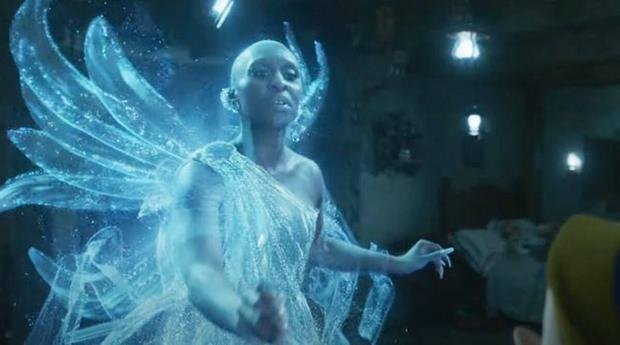
Let's start now to talk about character development and how this ended up affecting the essence of the story: the message it should convey. Let's start with the blue fairy, far from Disney's pathetic decision to replace Caucasian characters with black people for simple political issues, I must say that the Fairy in this version is even more bland than the one in the animation. She has no personality and to make matters worse, when trying to fulfil Geppetto's wish, she does it badly given the man's confusion and to make matters worse she leaves him that way, holding Pinocchio responsible for his change through his good deeds and the cricket's guidance. In the animation, the fairy deliberately brought the doll to life because it was her direct intention that Pinocchio should strive by himself (and with the help of the cricket) to be a good, kind, respectful, etc. child. Literally the fairy character contributes nothing except bringing Pinocchio to life but never again follows up to see if he is doing well.
Empecemos ahora a hablar del desarrollo de personajes y como esto terminó afectando a la historia en la esencia de la misma: el mensaje que debe transmitir. Empecemos por el hada azul, lejos de la decisión patética de Disney de suplantar personajes caucásicos por gente negra por simple política, debo decir que el Hada en esta versión es aún más sosa que la de la animación. No tiene personalidad y para colmo, al intentar cumplir el deseo de Geppetto, lo hace mal dado a la confusión del hombre y para más colmo lo deja así, haciendo responsable a Pinocchio de su cambio a través de sus buenas acciones y la guía del grillo. En la animación, el hada deliberadamente le daba vida al muñeco porque directamente su intención era que Pinocchio se esforzara por el mismo (y con ayuda del grillo) a ser un niño bueno, amable, respetuoso, etc. Literalmente el personaje del hada no aporta nada salvo darle vida a Pinocchio, pero nunca más le hace un seguimiento para saber si está haciéndolo bien.
I have no complaints about Geppetto, in fact in this film they justify why Geppetto went to look for Pinocchio in the sea is great, but, in the puppet circus there is a new character who adds absolutely nothing to the plot, but nothing, and it is this girl.
No tengo quejas de Geppetto, de hecho en esta película justifican el porqué Geppetto fue a buscar a Pinocchio en el mar está genial. Ahora bien, en el circo de marionetas hay un nuevo personaje que no le aporta absolutamente nada a la trama, pero nada, y se trata de esta muchacha.
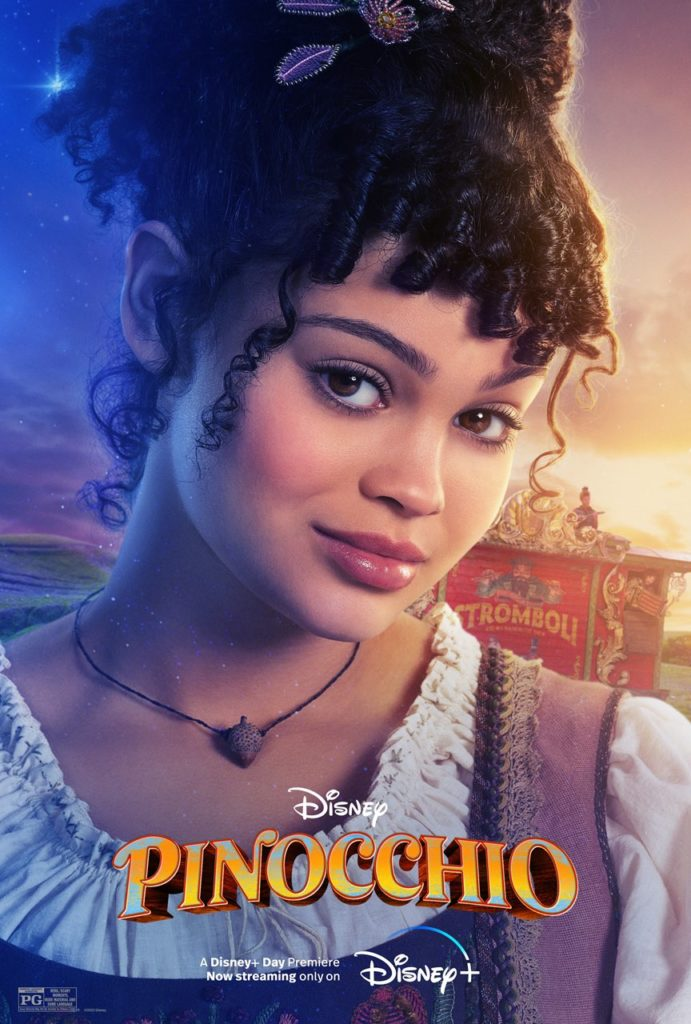
It's only there to present a progressive situation of a union unhappy with their employer, does that have anything to do with Pinocchio becoming a real boy? No! Does it have anything to do with Pinocchio's actions or his way of thinking? No! Does it at least help Pinocchio when he's locked in the wagon? Nope! She contributes absolutely nothing and the scenes of this character were lame (I didn't bring it forward because without seeing the whole movie you can't review it). If they hadn't put her in it wouldn't matter because she wasn't a crucial part at all and they didn't even use her to advance the plot, this character was completely redundant.
Solo está ahí para plantear una situación progresista de un sindicato descontento con su empleador ¿tiene eso que ver con el hecho de que Pinocchio se vuelva un niño de verdad? ¡No! ¿Tiene algo que ver con las acciones de Pinocchio o su forma de pensar? ¡No! ¿Al menos ayuda a Pinocchio cuando está encerrado en el carromato? ¡Tampoco! No aporta absolutamente nada y las escenas de este personaje daban flojera (no lo adelanté porque sin ver la totalidad de una película no se puede hacer un review) Si no la hubiesen puesto daba exactamente igual ya que no era parte crucial en lo absoluto y ni siquiera la usaron para avanzar la trama, completamente este personaje estaba de más.
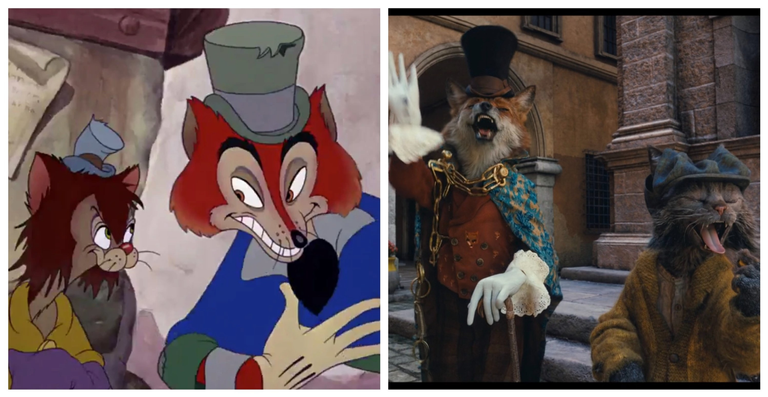
I have absolutely no complaints about this pair. J. Worthington Foulfellow is one of my favourite Disney villains as he's quite charismatic and has an amazing way of making you like him, Gideon the cat is equally stupid in this version and that's where the fun lies. the live action version of the fox is perfect and with the exception of the idiotic joke "you could become an influencer" when we are talking about a story from the 19th century or so just to make an unnecessary reference that kids nowadays understand, everything about him is perfect.
De este par no tengo absolutamente ninguna queja. El Honrado Juan es uno de mis villanos preferidos de Disney, ya que es bastante carismático y su labia es asombrosa, además tiene una facilidad para hacerse el simpático y que te agrade, Gideon el gato es igualmente estúpido y ahí radica su gracia. Su versión Live Action es perfecta y a excepción del chiste idiota de "podrías hacerte influencer" cuando estamos hablando de una historia del siglo XIX más o menos, simplemente para hacer una referencia innecesaria que entiendan los niños de ahora, todo en él es perfecto.
Now let's talk about the star: Pinocchio, and this is where the film takes a nosedive. Talking about character development, if we go to the classic, Pinocchio has a tremendous character development, he starts off as a rather innocent but at the same time disobedient child who gets into all sorts of trouble for disregarding the advice of his conscience, this is how these mistakes bring him different consequences, each one more serious than the other until almost causing the death of his father and his own, this is how Pinocchio learns from his mistakes and makes amends, finally acquiring his own conscience and as a reward the blue fairy finally turns him into a real boy.
Ahora hablemos de la estrella: Pinocchio, y es aquí cuando la película se va en picada. Hablando de desarrollo de personajes, si vamos al clásico, Pinocchio tiene un desarrollo de personaje tremendo, inicia siendo un niño bastante inocente pero a la vez desobediente que se mete en todo tipo de problemas por desoír los consejos de su conciencia, es así como estos errores le acarrean diferentes consecuencias, cada una más grave que la otra hasta incluso casi causar la muerte de su padre y la suya propia, es así como Pinocchio aprende de sus errores y se enmienda, adquiriendo por fin conciencia propia y como premio el hada azul lo convierte finalmente en un niño de verdad.
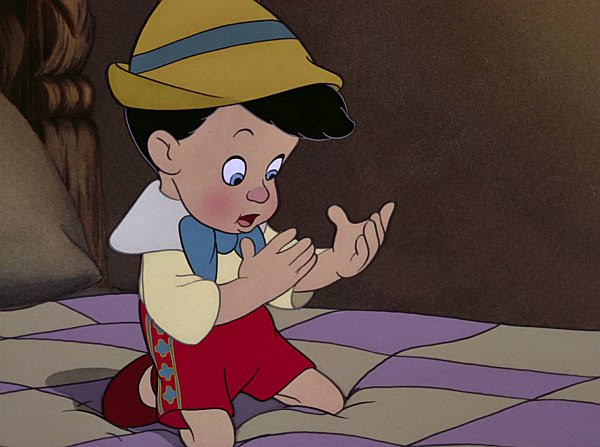
In the live action, Pinocchio has no development at all, to begin with, although at the beginning he goes with the fox and the cat, his conscience catches up with him and convinces him again to go to school, (up to that point it is fine because we could think that Pinocchio, having no criteria, gets carried away by any person changing his mind in a simple way, however, Pinocchio arrives at school and the teacher kicks him out because he is different (Disney tried to make us see that Pinocchio suffers from discrimination and they want to show us that no matter what others think, Geppetto loves him just the way he is) but this removes the message that Pinocchio is disobedient because he goes with the fox again because he was kicked out of school, not because he is deliberately disobedient.
En el live action, Pinocchio no tiene desarrollo alguno, para empezar, aunque en un inicio se va con el zorro y el gato, su conciencia le alcanza y le convence nuevamente de ir a la escuela, (hasta ahí está bien porque podríamos pensar que Pinocchio al no tener criterio, se deja llevar por cualquier persona cambiando de parecer de forma sencilla, sin embargo, Pinocchio llega a la escuela y el maestro lo corre de una patada porque es diferente (Disney intentó hacernos ver que Pinocchio sufre de discriminación y nos quieren mostrar que sin importar lo que otros piensen, Geppetto lo quiere tal cual es) pero eso elimina el mensaje de que Pinocchio es desobediente pues se va con el zorro nuevamente porque le corrieron de la escuela, no porque deliberadamente es desobediente.
This is the worst scene. In the classic, when Pinocchio is locked up, the fairy appears to ask Pinocchio why he is there. Pinocchio decides to lie to her and with each lie his nose grows so the fairy knows he is lying to her, she scolds him for this and after that, and after some harassment, sets him free. Whereas in the Live Action, Piocchio realises that if he lies, his nose grows (I don't understand here for what purpose as the fairy put this spell on the boy to show him that lies grow like his nose but in this film it never appears again) so he uses the lies and his nose to make the cricket take the key to escape, giving the wrong message to the children that lying far from getting you into trouble, gets you out of it.
De lejos esta es la peor escena. En el clásico, cuando Pinocchio queda encerrado, el hada aparece para preguntarle a Pinocchio porque está allí. Pinocchio decide mentirle y a cada mentira le crece la nariz por lo que el hada sabe que le está mintiendo, ella le riñe por esto y luego de eso y de acosejarle, lo deja en libertad, mientras que en el Live Action, Piocchio se da cuenta de que si miente, le crece la nariz (no entiendo aquí con que objetivo ya que el hada puso este hechizo en el niño para mostrarle que las mentiras crecen como su nariz, pero en esta peli nunca más aparece) así que usa las mentiras y su nariz para hacer que el grillo tome la llave para escapar, dando el mensaje equivocado a los niños de que mentir lejos de meterte en problemas, te saca de ellos.
While he is on his way to the Pleasure Island, Pinocchio is seen to be worried and unhappy and in fact he states that he does not want to go (here there is a rather boring and unnecessary musical intervention of the children pressuring Pinocchio to accept to go to the island) and I mean, if Pinocchio does not want to go, they leave him behind and everyone else goes, right? What prevents them from going if Pinocchio does not want to go? He is not the boss of everyone so that his permission is decisive. Pinocchio enters the island in high spirits as he finds it quite beautiful, however, as the stay progresses, he becomes more and more uncomfortable and we arrive at the mythical scene of the transformation into donkeys, and I wonder if the function of the island is to make the more fun the children have playing pranks, the more likely they are to become donkeys, why does Pinocchio partially become one, if he never enjoyed any activity on the island?
Mientras está de camino a la Isla de los Juegos, a Pinocchio se lo ve preocupado y descontento, y de hecho manifiesta que no quiere ir (aquí hay una intervención musical bastante aburrida e innecesaria de los niños haciendo presión a Pinocchio para que acepte ir a la isla) y me explico, si Pinocchio no quiere ir le dejan atrás y se van todos los demás ¿no? ¿Qué les impide ir si Pinocchio no quiere? No es el jefe de todos como para que su permiso sea determinante. En la isla, Pinocchio entra animado a ella ya que la ve bastante bonita, sin embargo, a medida que avanza la estadía, se va sintiendo más y más incómodo y llegamos a la mítica escena de la transformación en burros, y me pregunto si la función de la isla es hacer que mientras más se diviertan los niños haciendo travesuras, más posibilidades hay de que se conviertan en burros ¿Por qué Pinocchio se convierte parcialmente en uno si nunca disfrutó de ninguna actividad en la isla?
And I also say, the main message of Pinocchio is that if children misbehave and disobey their parents they can end up very badly (like the children turned into donkeys) however, far from Pinocchio being disobedient to the other child and both becoming donkeys as punishment (in Pinocchio's case half donkey because he is a wooden child) technically you don't understand why Pinocchio who has not enjoyed any of what is done there is being punished. The scene of the children smoking was omitted (because it is not very correct nowadays) but they are still shown consuming alcohol. I don't see anything wrong with putting children on screen smoking and drinking because they wouldn't be portraying it as something good, quite the opposite, to show the consequences of something bad you have to show it first because if you don't show it it doesn't exist. The most appropriate thing would be to see these children smoking and drinking alcohol, vandalising and to finally see the terrible consequence that this brings.
Y también digo, el mensaje principal de Pinocchio es que si los niños se portan mal y desobedecen a sus padres pueden terminar muy mal (como los niños convertidos en burros) sin embargo, lejos de que Pinocchio sea desobediente con el otro niño y ambos se hagan burros como castigo (en el caso de Pinocchio medio burro porque es un niño de madera) técnicamente no entiendes el porqué se le castiga a Pinocchio que no ha disfrutado de nada de lo que ahí se hace. Se omitió la escena de los niños fumando (porque es poco correcto hoy día) pero igualmente los muestran consumiendo alcohol. No le veo nada de malo a poner a los niños en pantalla a fumar y a beber porque no lo estarían representando como algo bueno, sino todo lo contrario, para enseñar las consecuencias de algo malo debes enseñarlo primero porque sino lo pones no existe. Lo más adecuado sería ver a estos niños fumando y bebiendo alcohol, haciendo destrozos y vandalismo para finalmente ver la terrible consecuencia que esto acarrea.
And I would say the worst mistake is at the end. After the scene of the fight with the whale and Geppetto wakes up (in this case they swapped roles) Geppetto gives a rather nice speech to Pinocchio telling him that he doesn't need a real boy and that it doesn't matter if he becomes a real boy or not, that he loves Pinocchio as he is, then they both walk out of the clearing and you think "Oh good, that's nice, Pinocchio didn't turn into a real boy to give force to Geppetto's speech and the fact that he loves him as he is "imperfect" that is until you realise that as he walks away, Pinocchio has no more hinges because in the end he did become a real boy 🤦 🤦 which means that Geppetto's speech even as nice and well intentioned, loses strength and sense, after all it is a film and what you are shown visually is what happens as it is, there is no room for assumptions.
Y diría que el peor error está al final. Luego de la escena de la lucha con la ballena y que Geppetto despierta (en este caso intercambiaron los papeles) Geppetto le da un discurso bastante bonito a Pinocchio diciéndole que no necesita a un niño de verdad y que no importa si se hace un niño real o no, que él ama a Pinocchio tal y como es, entonces ambos se van caminando del claro y piensas "Oh que bien, que bonito, Pinocchio no se transformó en un niño de verdad para darle fuerza al discurso de Geppetto y el hecho de que lo ame así como es "imperfecto" eso hasta que te das cuenta que mientras se aleja, Pinocchio ya no tiene bisagras porque al final sí se volvió un niño de verdad 🤦♀ 🤦♀ lo que quiere decir que el discurso de Geppetto aún tan bonito y bien intencionado, pierde fuerza y sentido, después de todo es una película y lo que te muestras visualmente es lo que pasa tal cual, no hay cabida a las suposiciones.
In short, it is not a bad remake in itself on a technical and cinematographic level, but it is a bad remake on a story level because although it respects the scenes of its animated counterpart, the change in the scripts damaged the main message of the film and, not only that, they gave us a new one that not even the film itself takes seriously.
En resumen, no es una mala remake en sí a nivel técnico y fotográfico, pero sí lo es a nivel historia porque aunque respete las escenas de su contraparte animada, el cambio a nivel de guiones hicieron que el mensaje principal de la película se dañara y que no conforme con esto, nos pusieran uno nuevo que ni la misma película toma en serio.
On the other hand, the aesthetics and characterisations were perfect and I was very happy that they respected the original aesthetics of Pinocchio since, being a wooden doll, they could afford this luxury. The songs and cannon scenes in this one were great, just as cute and funny and that appealed quite well to the nostalgia of all of us who grew up with these films.
Por otra parte la estética y caracterizaciones fueron perfectas y me alegró mucho el hecho de que respetaran la estética original de Pinocchio, ya que al ser un muñeco de madera, podían darse este lujo. Las canciones y escenas canon de esta quedaron geniales, igual de tiernas y graciosas y eso apeló bastante bien a la nostalgia de todos los que crecimos con estas películas.
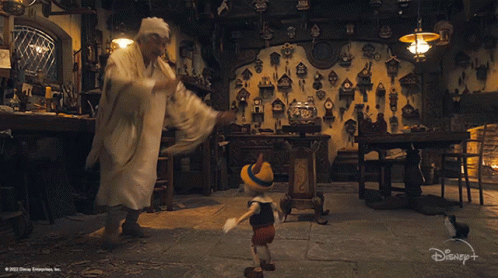
And well, people, that's all for today's post, I hope you liked it. Thank you very much as always for supporting my work, I welcome new readers, I love you all very much, I send you a hug and I'll see you in another post
Y bueno, gente, esto ha sido todo por el post de hoy, espero que les haya gustado. Muchas gracias como siempre por apoyar mi trabajo, le doy la bienvenida a los nuevos lectores, les quiero mucho a todos, les envío un abrazo y ya nos encontraremos en otro post
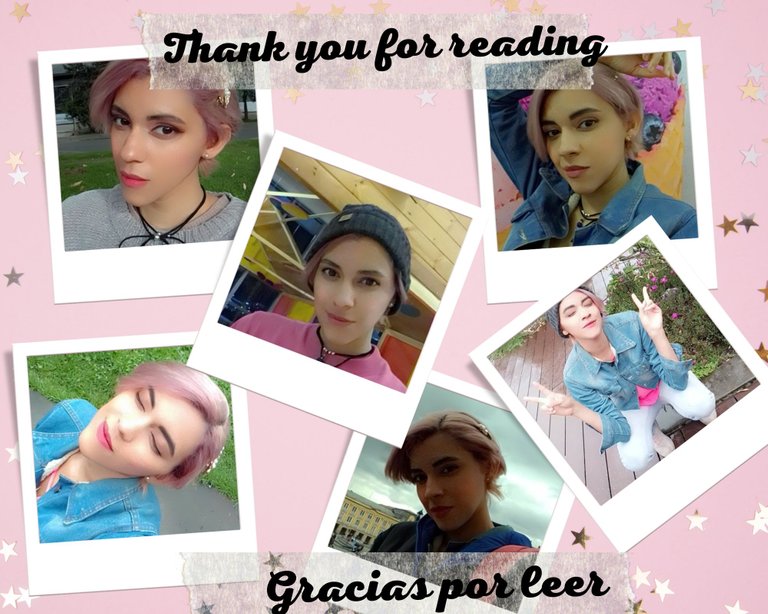
I made the farewell image in Canva.
La imagen de despedida la realice en Canva
Creo que por alguna de estas razones no termine viendo la película, al inicio tenia mucha ilusión por ver a Tom en este papel de Gepetto, pero luego de la isla de los juguetes, comencé a perder el interés y me distraje con otra cosa, así que realmente no me recuerdo de todo, pero si es cierto que hay cosas que como que no cuadran, tendría que volverla a ver después de leer tu reseña para comprobar todo y entender lo que nos dices, porque estoy segura que es así, gracias por compartir tu opinión sobre la película, te quedo muy bueno, saludos.
Creo que hubiese sido perfecta si no cambiaban el mensaje inicial del clásico y mantenían todo tal cual porque en cuanto a los demás aspectos venían muy bien y la actuación de Tom ni se diga, fue genial.
Soy una aficionada a Disney y sus clásicos, aún en mis 33 años hay días q amanezco con deseos de cantar con Ariel o con La Bella, q son mis favoritas,esta película y Blanca Nieves nunca han sido de mi agrado pero no es menos cierto que Disney con su inclusión y demás politiquería transforma los clásicos y esta es una de ellas,muchas cosas fieles a versión original ( como debe ser) pero otras pasaron el límite y solo los verdaderos amantes de la gran productora lo sentimos.Me encantó la publicación...espero con ansias la de La Bella 😁😁me etiquetas para que no se me pierda.Saludos y bendiciones amiga
Hasta ahora la unica bien hecha es la remake de La Bella y la Bestia... Mis espectativas en cuando a La Sirenita están por el suelo e inclusive si la veo (que lo dudo) pero si la veo para una review, creeme que no será ni en el cine ni en disney plus.
Hahaha vale, te etiquetaré :3
Coincido Contigo en todo, con La Sirenita me siento muy decepcionada y no por motivos de racismo, si no que como soy tan fanática a esas historias me gusta verlas en personas pero que mantengan los personajes y la trama al pie de la letra sin cambiar nada, recuerdo que cuando vi la Bella, oía canción por canción para saber si tenían la misma letra y eso fue lo que me enamoró de ella ☺️.
Tienes razón, es lógico que está película trasladé tantos elementos de la película original, no obstante, esto mismo me hace cuestionar un poco si era necesario que el remake existiera en primer lugar, aunque algunos aspectos de Pinocho han envejecido un poco mal, en general es una historia atemporal que no necesitaba este tratamiento.
Por supuesto, hay que admitir que igual es entretenida 😁
Siempre que algo tiene mucho tiempo es elegible para un remake y dado a que un remake es la misma cinta pero quizá con mejores gráficos, versión Live Action o alguno que otro elemento nuevo, en teoría debería funcionar. ¿Qué es lo que pasa actualmente? Que Disney se ha encargado de que la gente vea los Remakes como Reboots mal hechos de una cinta y que genere rechazo por este tipo de trabajos los cuales bien hechos, son geniales.
!ALIVE
PS. You will earn more ALIVE tokens if you add #AliveAndThriving too as we have a curation project looking for that tag with the largest ALIVE stake in the tribe behind it.
Made in Canva
thank you for your support
At the moment I'm not really looking forward to seeing this new Pinocchio movie. I don't think I've ever been a fan of this story, I've seen many animated versions, even the Roberto Benigni version. This one catches my attention because Tom Hanks is in it, but even that's not enough to make me want to see it.
Lately the Disney remakes leave too much to be desired, I think the only well done one is Beauty and the Beast to be honest